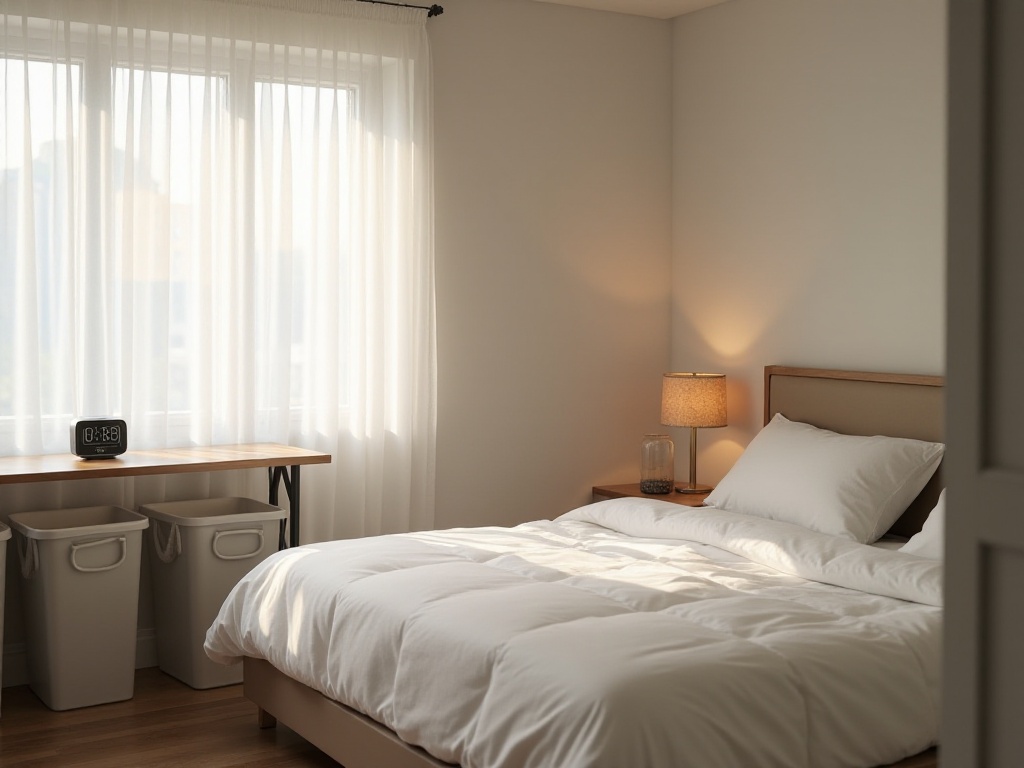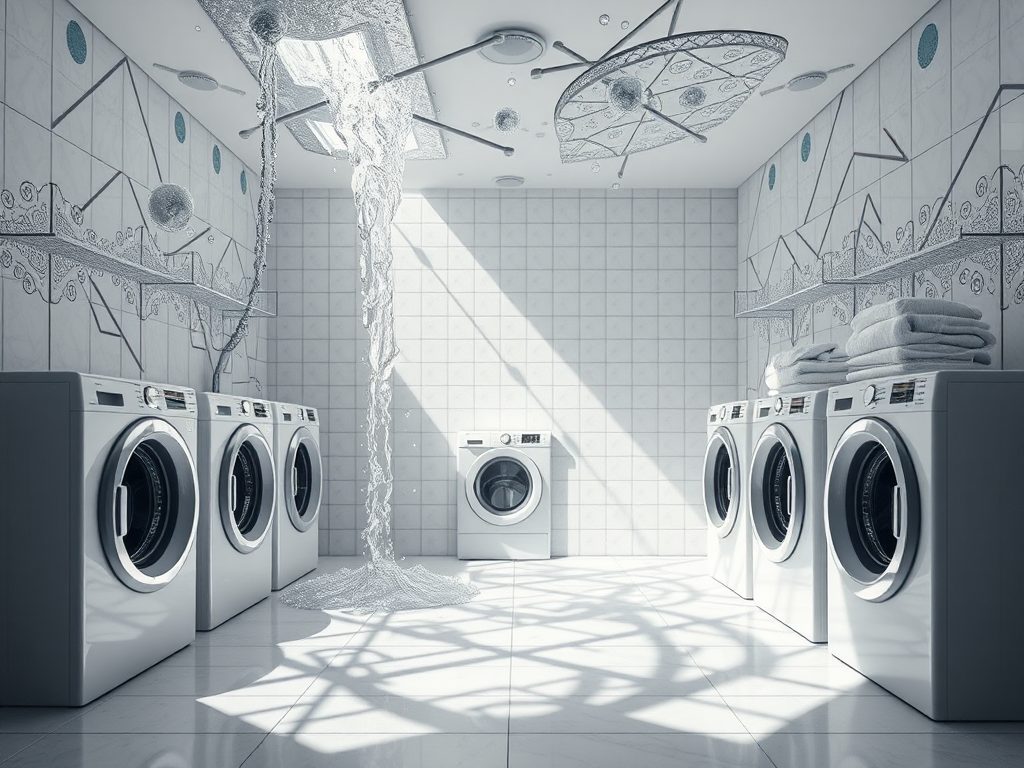Introduction
In this fast-paced era, do you find yourself scrambling to get ready every morning? Always feeling short on time, unable to get up despite setting multiple alarms, rushing out the door with messy hair, skipping breakfast, and almost missing the subway? I deeply relate to this experience, as I used to spend every morning this way until I began researching and practicing morning efficiency techniques that finally helped me overcome morning anxiety. Today, I want to share some methods I've personally tested to help you reorganize your morning time.
Evening Preparation
Did you know? An efficient morning actually starts the night before. I used to prepare everything in the morning, which often led to chaos when I couldn't find suitable clothes or forgot important documents. Now I've developed a pre-bedtime preparation habit that makes a significant difference. I once almost missed an important meeting because I was searching for documents in the morning. After that, I was determined to change this situation.
Every night before bed, I spend 15 minutes doing these tasks: First, I select clothes for the next day. I choose appropriate attire based on the weather forecast and schedule. For formal wear, I iron it in advance and hang it up. This keeps clothes wrinkle-free and ready to wear the next day. Next, I prepare my bag and documents. I arrange all important documents in order of use and put them in my bag. Finally, I check my phone's battery to ensure it's sufficiently charged for the next day.
After a month of practice, I found these evening preparations save me at least 20 minutes of preparation time in the morning and make me feel more relaxed. No more worrying about finding things or stressing about what to wear. Now I stick to this habit every night, even preparing breakfast ingredients and storing them in the refrigerator.

Goodbye to Oversleeping
For many people, the hardest part isn't setting an alarm but actually getting up when it rings. According to sleep research experts, people hit the snooze button 3-4 times on average each morning, which doesn't provide better rest but actually makes them more tired. I used to love staying in bed, often turning off one alarm only to set another, ultimately getting up half an hour later than planned.
After extensive research and experimentation, I finally found a method that works for me. My solution is to place my phone at the furthest point from my bed, like on the desk or near the closet. This way, I must get out of bed to turn off the alarm. Statistics show that over 80% of people won't return to bed once they've left it. This small trick is indeed effective because once you've walked to the other side of the room, your body has started moving and your brain is gradually waking up.
Additionally, I adjust the room temperature before bed, keeping it between 68-77°F (20-25°C). Research shows that suitable room temperature makes it easier to wake up. I also leave the curtains partially open to allow natural light to gradually enter the room in the morning, making waking up more natural and comfortable.
While practicing these methods, I discovered that establishing a regular sleep schedule is most important. I now start preparing for bed at 10:30 PM and am in bed before 11 PM. This ensures 7-8 hours of sufficient sleep, making it naturally easier to get up the next day.

Efficient Wake-Up Method
The first 15 minutes after waking up determine your state for the entire day. I deeply relate to this statement, as I used to immediately check my phone after waking up, unknowingly wasting a lot of time and feeling more tired. Now I do three things every morning after waking up. These things seem simple but help me quickly reach my optimal state.
The first thing is to make the bed immediately. According to psychological research, the simple act of making your bed can bring a sense of achievement and increase work efficiency by 12%. I've now developed the habit of making my bed immediately after waking up. This action takes less than 2 minutes but gives me my first small achievement of the day. A tidy bed not only makes the room look neater but also provides a positive psychological suggestion.
The second thing is to immediately drink a glass of warm water. I keep a thermos by my bed so I can hydrate anytime. Medical research shows that the body loses 300-400ml of water during sleep, and replenishing water in the morning can increase metabolic efficiency by 15%. Warm water also helps wake up the digestive system and promotes the recovery of bodily functions. I now drink a large glass of warm water every morning and wait a few minutes for my body to fully absorb it.
The third thing is to do 3 minutes of simple stretching. This doesn't require complicated movements; I usually just stretch my arms and twist my waist, which helps my body quickly get into state. Research shows that morning exercise can make the brain secrete dopamine, increasing work focus by 25%. My stretching routine includes: raising arms overhead, rotating neck and shoulders, twisting waist and hips, and rising on tiptoes to stretch calves. These simple movements can activate all body muscles, helping the body shake off sleepiness more quickly.
After completing these three simple actions, I feel much more energetic. Then I proceed with washing up and starting other preparations for the day. I've found that following this order not only helps my body wake up quickly but also establishes a good morning ritual, giving each day a positive start.

Scientific Organization
A well-organized living environment can make morning preparations twice as efficient. I deeply understand this point because my room used to be messy, and I spent a lot of time looking for things every morning. Later, I referred to some organization experts' suggestions and reorganized items according to frequency of use: most frequently used items within arm's reach, less frequently used items within sight, and rarely used items in storage spaces.
Specifically, I divide organization into three levels. The first level is daily necessities, including keys, wallet, and phone, which I place on the entrance storage rack. The rack has a small tray specifically for easily forgotten items like meeting notebooks or important documents. The second level is frequently used but not daily items, like umbrellas and jackets, which I keep on the entryway coat rack or in shoe cabinet drawers. The third level is seasonal items, like winter coats or summer parasols, which are stored in the closet or storage boxes.
In the bathroom, I use a similar organization method. Toiletries are arranged in order of use: first face wash and toothbrush/toothpaste, then skincare products, and finally makeup. Each product has a fixed position and is returned immediately after use. I also attached a waterproof hook next to the mirror specifically for towels, so I don't have to worry about where to put wet towels.
Through practice, this organization method saves me 40% of time when looking for things. More importantly, a neat environment makes people feel pleasant and increases work efficiency. Now I can quickly find needed items every morning without anxiety about lost items.

Summary and Reflections
Through these techniques, I've reduced my morning preparation time from one hour to 25 minutes. These changes didn't happen overnight but were achieved through continuous adjustment and optimization. I found that the most important thing is to build a system that works for you, rather than blindly copying others' methods.
For example, I discovered that choosing clothes is what I tend to procrastinate most in the morning, so I particularly focus on evening clothing preparation. Others might be more concerned about breakfast time, so they can focus more on ingredient preparation and cooking process optimization. Everyone's living habits and needs are different; the key is finding what works for you.
While practicing these methods, I also encountered setbacks. At first, I would often forget to prepare things for the next day in the evening, or couldn't resist staying in bed longer. But I told myself that forming a good habit takes 21 days of persistence, and once formed, it will significantly improve your quality of life. Looking back now, these changes have indeed made my life more organized and efficient.
By the way, do you have any unique morning habits? Everyone has their own tips, and maybe your experience could help others. Let's create a more efficient morning together.
Extended Thoughts
Actually, improving morning efficiency is just a small part of optimizing life. When we can control the start of each day well, it becomes easier to plan and arrange the entire day's time. This positive cycle makes our lives more organized and fulfilling.
In this process, I also discovered many topics worth deeper exploration, such as how to improve sleep quality, how to plan time well, and how to keep rooms tidy. These are all interconnected and together form a system for efficient living. In the upcoming series of articles, I will continue to share more practical tips about time management and home organization. I believe that through continuous learning and practice, we can all find the lifestyle that suits us best. Stay tuned.







